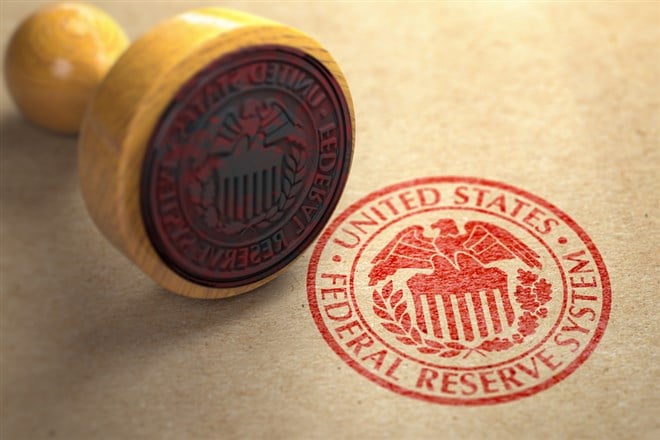Europe Raises Interest Rates, Should the Fed Follow? The European Central Bank increases interest rates by 50 basis points while also contending with a banking crisis - should the Fed follow suit?
This story originally appeared on MarketBeat

The European Central Bank (ECB) raised interest rates by 50 basis points yesterday as reported by Reuters.
Europe is contending with high inflation while also facing off against disruption in its banking sector. Policy makers also hit back at the idea that increasing interest rates could do more harm than good, and that banks would ultimately benefit from higher rates in the long run.
The question that's on some people's minds then is should the Federal Reserve also follow in the ECB's footsteps to stamp out persistent inflation?
It was estimated by JP Morgan (NYSE: JPM) analysts recently that two trillion dollars could be headed towards the banking sector in the form of liquidity, and bonds have also risen in expectation that the Fed will discontinue hiking interest rates in the short-term.
Inflation shows signs of slowing
The Fed will need to perform a balancing act of higher interest rates while also not putting the economy in a recessionary tailspin. There's also some recent evidence that inflation is slowing down, which could nudge policy makers to take a more dovish tone.
The inflation rate at the time of writing is around 6.04%, compared to 6.41% last month and 7.87% last year. Still, although it is certainly improving, it's also far above the long-term inflation rate of 3.28%.
These numbers have fallen for eight consecutive months ending in February. However, some problems remain as gasoline prices remain stubbornly higher. The good news is that other necessities such as food prices have been trending downwards.
One of the biggest contributors to inflation is currently rent prices, which is currently up around 8.8% over the past year. Some economists are predicting that rent prices will fall, but this might not happen until later in the year.
Banking sector remains precarious
Those who believe that the Fed won't raise rates are rightfully pointing towards the recent closures of Silicon Valley Bank (NASDAQ: SIVB) as well as Signature Bank (NASDAQ: SBNY). The threat of a financial disaster in the banking sector could dissuade the Fed from making any aggressive moves on the interest rate front.
Still there is evidence that the Fed believes that the sector is in a better position than some believe it to be, with Treasury Secretary Janet Yellen stating yesterday that the sector "remains sound" and investors should be confident that banks will honor their deposits.
This confidence could push the Fed to continue in their line to reduce inflation, buoyed by the liquidity program that could give institutions additional spending power and a larger margin of safety.
Inflation is worse than a recession in many ways, but the most popular reason is that it diminishes the spending power of each person in the economy, not just those who lose their jobs or struggle to find more and make ends meet.
Good news for European Banks
Banks like Credit Suisse (NYSE: CS) that some thought would be under the threat of imminent collapse, have seen some relief over the past couple of days. The company lost 25% of its value in a single trading session on Wednesday over concerns that Saudi National Bank would no longer provide it with capital to stay afloat.
However, the Swiss national bank also made a similar liquidity pledge as the Fed recently, which helped to reduce the lender's surging credit default swaps. It's estimated that banks will borrow up to 50 billion Swiss francs to ensure they have enough cash on hand to pay back their depositors.
In all, the Fed providing the liquidity as a backstop may give banks enough room to weather any short-term losses and fluctuations as the Fed continues to hike rates further to finally stamp out inflation. It may also opt to inject more funds into its liquidity program to offset dangers proposed by higher rates if it stays its course of action.










